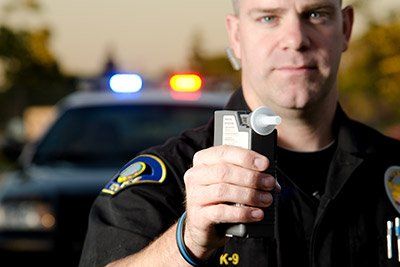Blog Post
YOUR RIGHTS WHEN PULLED OVER
- By websitebuilder
- •
- 31 Oct, 2017
KNOW YOUR RIGHTS IF YOU’RE PULLED OVER BY THE POLICE

Most people know that it is unnerving to be pulled over when driving no matter what the circumstances are, but not many people know their rights in this situation. Being educated beforehand can keep you from accidentally falling into trouble with the law.
If you see police lights behind you, pull over to the right side of the road in a safe place, turn off the ignition and roll down your window so the officer can see your hands as he approaches your vehicle. Always keep your hands visible and be as courteous as possible. When the officer asks, hand over your license and registration.
THE RIGHT TO REMAIN SILENT
It’s true what you often hear in movies or crime shows: You have the right to remain silent and so do any passengers in the car with you. Officers are allowed access to basic information like your name, birthday and address, but not details about your personal life. You do not have to tell the officer where you are going, where you’re coming from or what you’ve been doing. You are allowed to say, “I am going to remain silent.” Likewise, if the police officer says, “Do you know why I pulled you over?” you do not have to answer this question, and you’re probably better off saying “No, I don’t.” The police do this because they are looking for evidence or admission of a crime. Any information you give them can and will be held against you, so do not talk to the police if possible.
CONSENTING TO SEARCHES
If an officer asks to look inside your car, you have the right to say, “I am not resisting, but I do not consent to a search.” If the officer does search you or your car anyway, repeat “I don’t consent to this search.” Never physically resist an officer. However, if the police believe they have “probable cause” to search your car, they can do so without your consent. Probable cause has to be based on fact, not just a “hunch” the officer has. For example, the officer would have to smell or see evidence of alcohol consumption to have probable cause to search you; he or she couldn’t just say that you “seem like the type of person to be drinking and driving” or search you “just in case.”
FIELD SOBRIETY TESTS AND BREATHALYZER
Field Sobriety Tests are tests designed to tell an officer if a driver has been drinking or not, but they are entirely subjective and at the discretion of the officer. There are three standardized tests every officer should give: following a penlight or object with your eyes (called horizontal gaze nystagmus test), the walk and turn test, and the one leg stand. As we have discussed before, these tests are not designed to help you and you do have the right to refuse. It is recommended that you don’t take the standardized field sobriety tests. Sometimes officers may pose additional, nonstandardized tests like speaking the alphabet, a finger-count test, or closing your eyes and looking up.
You may also be asked to take a Breathalyzer test, which is a contraption that estimates your blood alcohol content from a breath sample. You are also allowed to refuse this (although, if you have a prior DWI conviction, ask your lawyer what to do should this situation arise. Refusing a Breathalyzer or field sobriety test with a DWI conviction can be a misdemeanor in some states). However, this can be complicated due to Texas’s implied consent law, which states that you implicitly agreed to take one or more chemical tests when you got your driver’s license. Many lawyers will tell you to only take the Breathalyzer if you are completely sure you are sober because any test results can be used as evidence against you. Refusing chemical testing for intoxication can lead to having your license suspended for several months, but your refusal can’t be used as evidence against you in court.
SCHEDULE A NO-OBLIGATION CONSULTATION
It can be hard to remember and exercise your rights when confronted by the police. Always be polite and respectful and if in doubt, say you would like to speak to an attorney first. If you are charged with a DWI, refusing a chemical sobriety test, possession of drugs or any other felony, seek the counsel of an experienced DWI Attorney, contact Raymond Martinez Attorney at Law.
Share
Tweet
Share
Mail
Content, including images, displayed on this website is protected by copyright laws. Downloading, republication, retransmission or reproduction of content on this website is strictly prohibited. Terms of Use
| Privacy Policy





